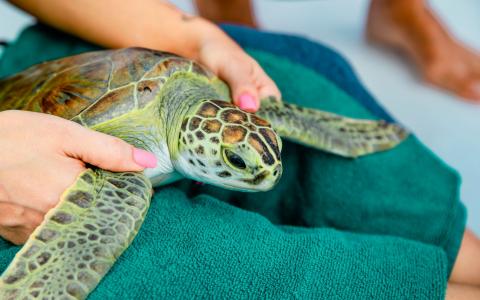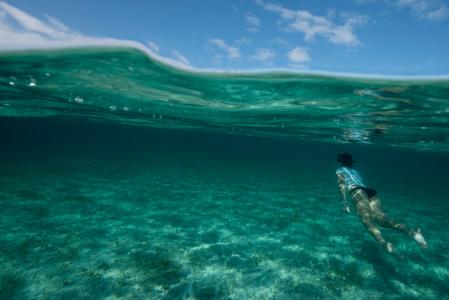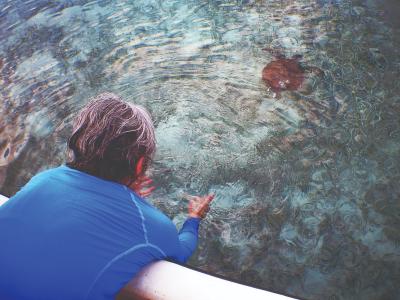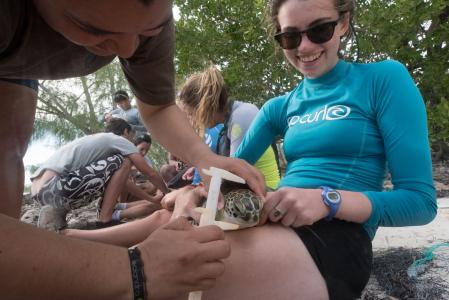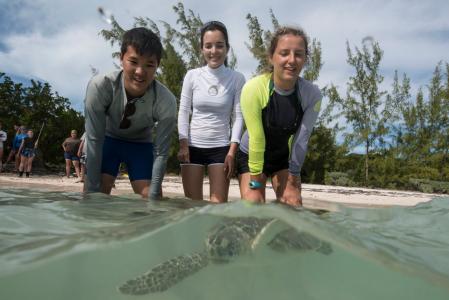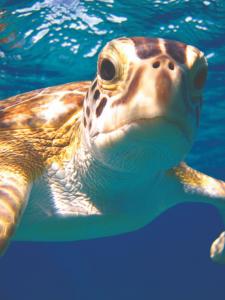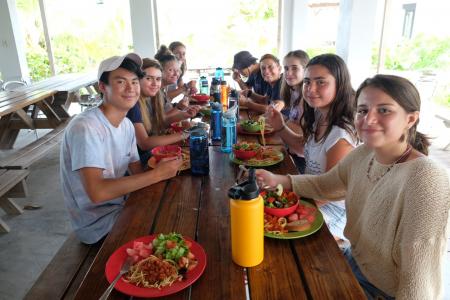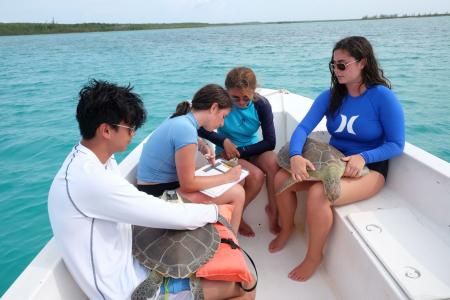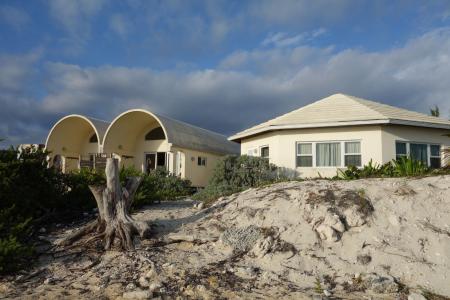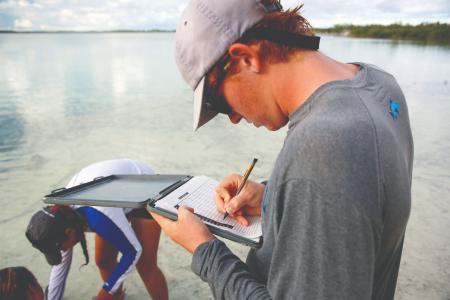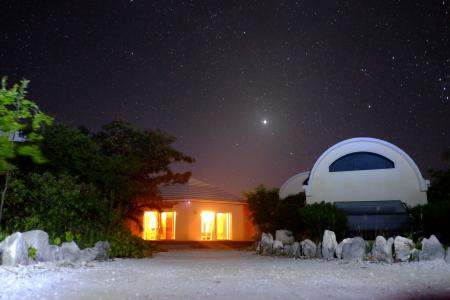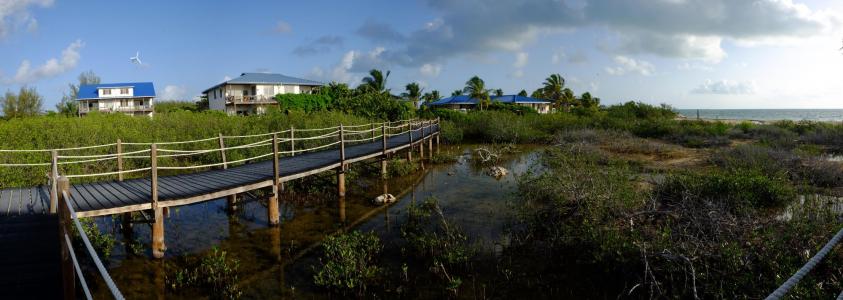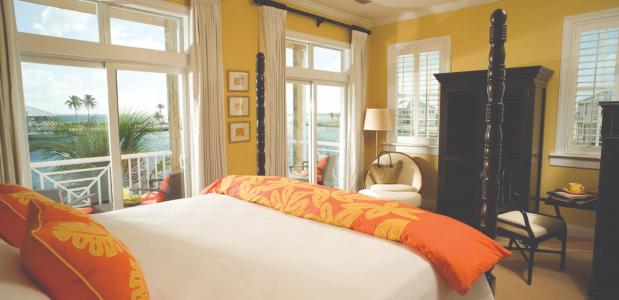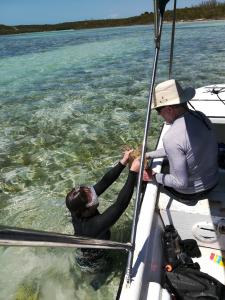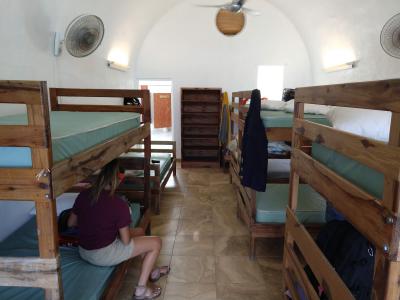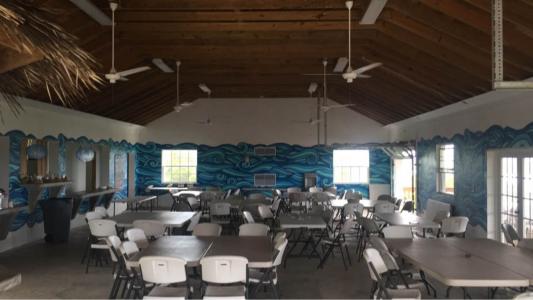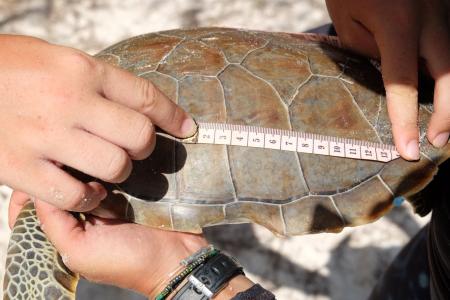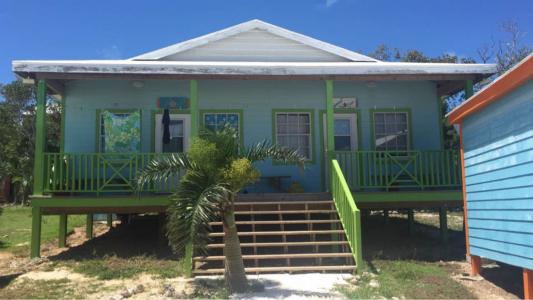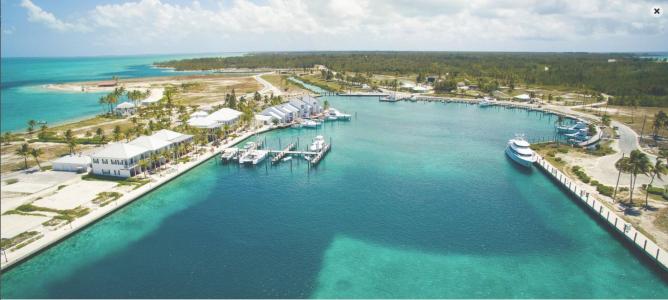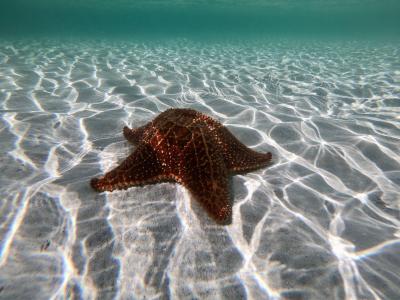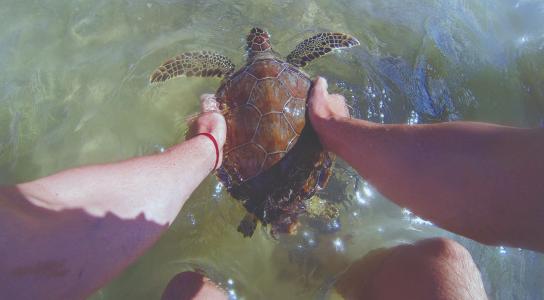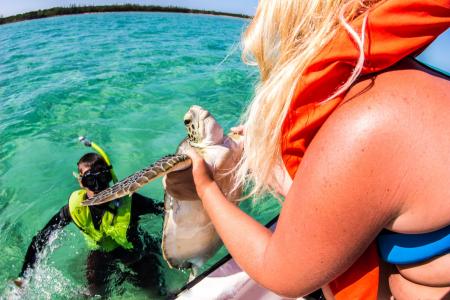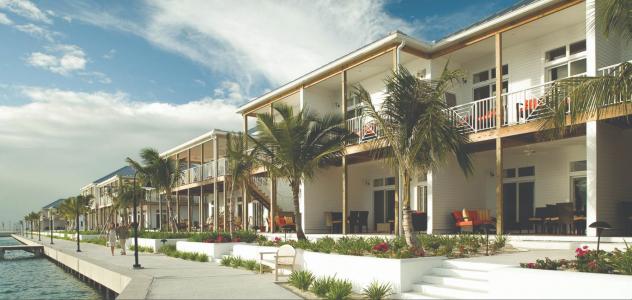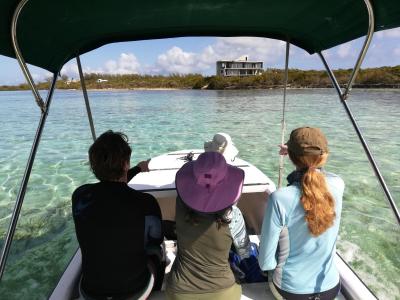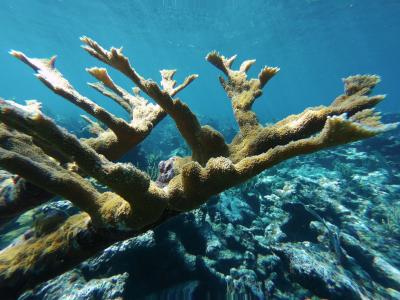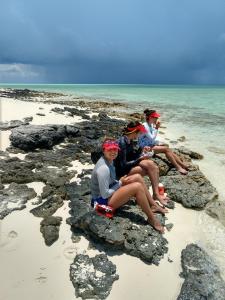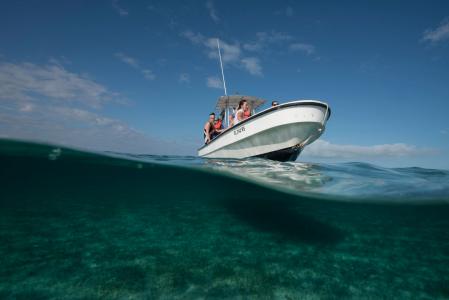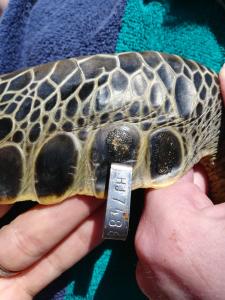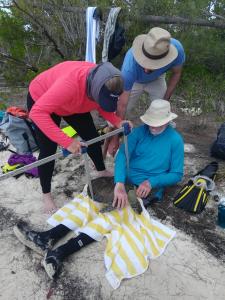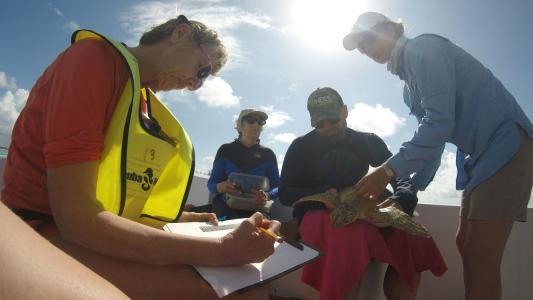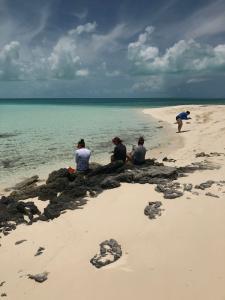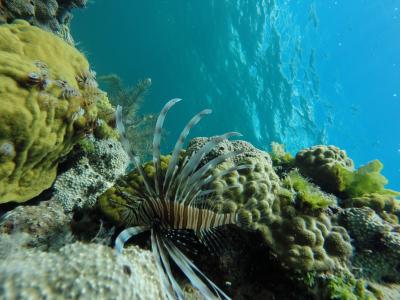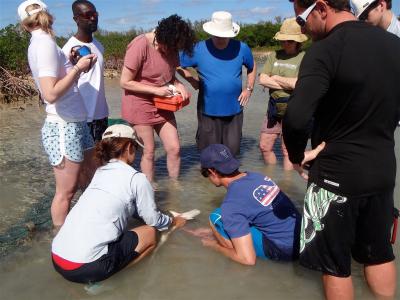.
COVID-19 Enhanced Health and Safety Measures
This project has been amended to incorporate several health and safety measures to allow responsible fielding of teams during the COVID-19 pandemic. Please refer to the COVID Disclosure Form for more details.
Before Fielding
- Vaccination against COVID-19 is required for all participants. Staying up-to-date with your vaccinations, including receiving booster doses if available, is strongly encouraged.
- Become familiar with and abide by the local COVID requirements up to date vaccinations, including boosters, mandatory quarantine, or other guidelines.
- Do not travel to your Earthwatch expedition or program if you:
- are experiencing symptoms consistent with COVID-19 (cough, shortness of breath or difficulty breathing, fever, chills, muscle pain, sore throat, or new loss of taste or smell),
- are confirmed or suspected as having COVID-19 within the past 10 days
- have been in close contact with someone suspected or confirmed as having COVID-19 in the past 10 days
- You are highly encouraged to take a COVID-19 test one day before or the morning of your rendezvous, before meeting up with your team.
While in the Field
- Face masks will be required in line with local regulations and/or when instructed by project leadership. In areas or on projects where mask use is no longer required, the use of face masks will be optional. Any individual who wishes to continue to mask will be supported in that decision.
- Participants and project staff will continue to wash or sanitize hands frequently and maintain physical distance whenever possible.
- All team members will be asked to monitor their own health through daily health checks.
- Recreational activities may be limited or require additional face mask requirements in order to reduce the risk of exposure to team members or to the local community.
- Meals and activities will take place outside whenever possible.
- Ventilation will be increased indoors and within enclosed vehicles whenever possible.
The Research
The green sea turtle (Chelonia mydas) is in trouble (Wilderman et al. 2018,, Hamann et al. 2010). Even though the Bahamian government has made it illegal to catch sea turtles in the country’s waters, to save this endangered species from further decline, researchers need to ensure their habitats are protected from coastal development and other human activities.
In their juvenile years, green sea turtles primarily feed on seagrass found in shallow bays and mangroves (Bjorndal & Bolten 2010). Although scientists know that these habitats are critical for young turtles, they don’t know exactly how and why turtles choose them and move between them.
The seagrass beds, coral reefs, and mangrove creeks where young turtles find food vary in size, types of vegetation, productivity, and a host of other features. Presumably, turtles forage in habitats with the most optimal conditions. So what are these optimal conditions? You’ll help answer this crucial question by monitoring the abundance of turtles in different areas and tracking the physical features of habitats that attract the most turtles. Your participation will help researchers and policy makers create plans that will protect the right habitats from development as well as predict the impacts of climate change on coastal habitats and green turtle populations.
Research Aims
By observing these ancient creatures, you’ll contribute to a long-term understanding of how juvenile sea turtles develop, both as populations and as individuals. The research focuses on the following objectives:
- Recording Sea Turtle Abundance and Distribution: Scientists know that shallow waters serve as important feeding grounds for juvenile hawksbill and green sea turtles. But the characteristics of foraging grounds can vary greatly. You’ll count the number of sea turtles present across multiple foraging sites, the idea being that the best foraging sites will abound with turtles. To count the relative abundance and distribution of turtles in coastal habitats, aerial drones will be used to conduct surveys to record video data on the location and amount of turtles without the disturbance of human presence (Robinson et al. 2020). The scientists are also interested in the presence of turtle disease in these areas.
- Mapping Habitat and Food Resource Availability: To further investigate which factors influence where sea turtles choose to forage, you’ll help map food resources, such as seagrass and algae, found in foraging sites. When compared with sea turtle numbers from the first objective, this information will help researchers understand how green sea turtles choose where to dine.
- Long-Term Monitoring: Turtles travel throughout their lifetime. By tagging and monitoring their movements, scientists can determine what (and where) turtles eat while they grow (Bjorndal & Bolten 2000, Kubis et al. 2009). Researchers keep this account by periodically recapturing tagged turtles to monitor growth rates and migration patterns. The Bahamian government is currently restructuring their permitting process, which is shifting some of the data that scientists (and citizen scientists) are currently able to collect. At this time, research teams fielding in the spring and summer of 2022 will not be able to capture, handle and tag turtles.
How You Will Help
The role of an Earthwatch volunteer is unique—you are donating your time, money, and effort in the service of science. You can expect to make a meaningful contribution to your lead scientists’ work by assisting with various tasks relating to data collection. Each team is different, and based upon the needs of the scientists, the weather, the research schedule, and myriad other factors, here are some of the tasks we typically rely on volunteers to help accomplish:
- Turtle Abundance and Distribution Surveys: You will assist the scientists with drone deployments and recording environmental data (cloud cover, wind direction, tide, etc.) for drone turtle surveys. Drones will be deployed and retrieved either from land or from the boat depending on accessibility.
- Tagging Sea Turtles: UPDATE! As noted above, recent changes in the permitting process are restricting many research activities in The Bahamas. This includes tagging sea turtles. Research teams fielding in the spring and summer of 2022 will not be able to capture, handle and tag turtles, though will still be contributing through the habitat assessment work as well as the more passive turtle abundance and distribution observations.
- Data Management: You’ll also help with one of the pivotal steps in any scientific research: entering and analyzing data. In the evenings, or during unfavorable weather, you’ll transfer notes from the field into a database and help analyze videos from drone surveys and footage from animal borne cameras collected previously. You may also be assisting with seagrass/algae sample processing for productivity.
As human development continues to shape the natural world that turtles thrive in, it’s critical to observe and understand their movements so that we can best protect the places they need most. Your participation in this expedition will provide a valuable contribution to this effort.
Life in the Field
You’ll work under the leadership of the Earthwatch scientists and other experienced staff members, who will oversee data collection during surveys. After eating breakfast and packing field lunches, you’ll spend your days traveling to various field sites around South Eleuthera and conducting sea turtle and habitat surveys either from a boat or the shoreline. In the evenings, you’ll assist with video analysis, sample processing, and data entry. Most lunches will be in the field but all dinners will be back on campus. Participants will have time to rest and freshen up before dinner, taking turns to clean dishes after the meal. After any final tasks are complete, we will discuss the next day’s plan and there is the opportunity to hear about other research projects from the science team. You could also choose to star gaze, socialize with fellow teammates or retire early to re-energize for the next day.
During the recreational day all participants will go by vehicle to various attractions along the island, that may include easily accessible caves, historical buildings, a nature preserve, local settlements and craft shops. Alcohol consumption is prohibited at all sites but may be available during group meals off campus.
COVID-19 Safety Measures
- Participants are asked not to approach or speak with unfamiliar people not associated with the project to reduce the risk of disease transmission during the COVID-19 pandemic.
- Participants and project staff will maintain physical distance, wash/sanitize hands frequently, and wear face masks as instructed by project leadership.
- All team members will participate in daily health checks.
- Recreation time will be limited to activities that can accommodate Earthwatch’s distancing and sanitation protocols. Field staff will advise volunteers on public space to visit that are not busy during their unstructured time.
ITINERARY
Weather and research needs can lead to changes in the daily schedule. We appreciate your cooperation and understanding.
- Day 1: Arrival in the late afternoon, dinner and then project orientation and settling in.
- Day 2: Introduction to snorkeling, sea turtles and methodologies training.
- Days 3–7: Data collection, fieldwork in mangrove creeks and beaches, and data entry at the end of each day. Earthwatch scientists will hold talks on project topics on some evenings. One full day or half-day will be reserved for recreational time to visit other parts of the island, depending on the weather forecast.
- Day 8: Final data collection, completion of outstanding data entry, team wrap-up and review of achievements, packing and dinner.
- Day 9: Early morning departure.
Accommodations and Food
If you are going on an Eleuthera expedition, you will be alerted of your team’s accommodation placement after you book the expedition. We appreciate your flexibility.
CAPE ELEUTHERA INSTITUTE
SLEEPING
You’ll stay at Cape Eleuthera Institute in single-sex, bedrooms, each housing up to twopeople. Every room contains twin beds and a wardrobe, electric ceiling fans, lights, and 110-volt outlets (you are welcome to bring electronic equipment but expected to conserve power so no hair dryers etc.). Pillows will be provided, but you need to bring your own bedding (sheets, blankets, pillow cases, or sleeping bags) and towels. Couples and singles accommodations are available.
Note: The volunteers will be spread between two different types of accommodations at Cape Eleuthera Institute, so although we ask everyone to bring bedding, you might not end up needing it depending on your accommodation assignment.
COVID-19 Safety Measures
Participants will be assigned single bedrooms within the accommodations. Ample hand soap and cleaning supplies will be provided. Common areas and high-touch surfaces will be cleaned daily.
BATHROOMS
Each bedroom has an ensuite bathroom with toilet, sink and shower.. Solar hot water heaters provide hot water, and CEI requires water conservation.
Note: Hallig house also has en-suite bathrooms, and is also solar heated water.
ELECTRICITY
As mentioned above, each dormitory/facility contains electric ceiling fans, lights, and 110-volt outlets. You are welcome to bring any electronic equipment but no hairdryers.
PERSONAL COMMUNICATIONS
CEI has phone facilities that may be used by volunteers by arrangement with CEI staff. Wireless Internet is available for the adult participants and chaperones for teen/school group teams (depending on group size). Internet access will not be available for school group participants or teens. Mobile phone coverage varies in The Bahamas, but may be possible (while expensive) for some networks. You are free to bring your own cell phone.
Please note: Earthwatch encourages volunteers to minimize outgoing calls and immerse themselves in the experience; likewise, family and friends should restrict calls to urgent messages only. Emergency communications will be prioritized.
DISTANCE TO THE FIELD SITE
The field sites are close to CEI. It will typically take less than 45 minutes by boat or van to reach the mangrove creek sites.
FOOD AND WATER
Meals will be served buffet style in a central dining area, which is shared by all volunteers, staff, students, and researchers. Three meals a day will be prepared by local cooks. All guests help with basic kitchen cleaning duties on a rotating basis (once every few days). Snacks can be purchased from a store at the nearby marina or in Rock Sound when passing through. No alcohol is permitted at CEI.
COVID-19 Safety Measures
Team members will be physically distanced at mealtimes, which may require staggered meal schedules. Meals will be eaten outside whenever possible.
TYPICAL MEALS
The following are examples of foods you may find in the field. Variety depends on availability. We appreciate your flexibility.
- Breakfast: Cereal, yogurt, toast, bagels, eggs, grits, seasonal fruits, fruit juice.
- Lunch and Dinner: A mix of traditional Caribbean food (e.g., rice and beans accompanying meat or poultry dishes), fresh salads, and American food (e.g., pasta, soup, hamburgers). Packed lunches are sandwiches, fruit, gorp, cassava chips.
- Dessert: Please purchase snacks before the expedition. There’s a shop at the nearby marina for any midday candy, snack, or ice cream urges.
- Beverages: Juice, water, tea, and coffee may be available during mealtimes.
- Water: Always available from taps. Please bring refillable water bottles for personal use.
SPECIAL DIETARY REQUIREMENTS
Please alert Earthwatch to any special dietary requirements (e.g., diabetes, lactose intolerance, nut or other food allergies, vegetarian or vegan diets) as soon as possible, and note them in the space provided on your volunteer forms.
CAMP BAHAMAS
SLEEPING
You’ll stay at Camp Bahamas in single-sex, dormitory-style cottages, each housing up to eight people. Every room contains twin bunk beds and basic shelving, air conditioning, electric ceiling fans, lights, and 110-volt outlets (you are welcome to bring electronic equipment). Pillows will be provided, but you need to bring your own bedding (sheets, blankets, pillow cases, or sleeping bags) and towels.
COVID-19 Safety Measures
Participants will be assigned single bedrooms within the accommodations. Ample hand soap and cleaning supplies will be provided. Common areas and high-touch surfaces will be cleaned daily.
BATHROOMS
Each dorm room has a communal toilet and washing area and multiple showers are available.
ELECTRICITY
As mentioned above, each dormitory/facility contains air conditioning, electric ceiling fans, lights, and 110-volt outlets. You are welcome to bring any electronic equipment but no hairdryers.
PERSONAL COMMUNICATIONS
Wireless Internet is available at Camp Bahamas. Mobile phone coverage varies in The Bahamas, but may be possible (while expensive) for some networks. You are free to bring your own cell phone.
DISTANCE TO THE FIELD SITE
The field site of Savannah Sound is right off the beach of Camp Bahamas.
FOOD AND WATER
Meals will be served buffet style in a central dining area, shared by all volunteers and staff and any other groups staying at the facility. Three meals a day will be prepared by the staff but most lunches will be a field packed lunch. No alcohol is permitted at Camp Bahamas.
COVID-19 Safety Measures
Team members will be physically distanced at mealtimes, which may require staggered meal schedules. Meals will be eaten outside whenever possible.
TYPICAL MEALS
The following are examples of foods you may find in the field. Variety depends on availability. We appreciate your flexibility.
- Breakfast: Cereal, yogurt, toast, bagels, eggs, grits, seasonal fruits, fruit juice.
- Lunch and Dinner: A mix of traditional Caribbean food (e.g., rice and beans accompanying meat or poultry dishes), fresh salads, and American food (e.g., pasta, soup, hamburgers). Packed lunches are sandwiches, fruit, gorp, cassava chips.
- Dessert: Please purchase snacks before the expedition. There’s a shop at the nearby marina for any midday candy, snack, or ice cream urges.
- Beverages: Juice, water, tea, and coffee may be available during mealtimes.
- Water: Always available from taps. Please bring refillable water bottles for personal use.
SPECIAL DIETARY REQUIREMENTS
Please alert Earthwatch to any special dietary requirements (e.g., diabetes, lactose intolerance, nut or other food allergies, vegetarian or vegan diets) as soon as possible, and note them in the space provided on your volunteer forms.
KENYON RESEARCH CENTER, ABACO
All Abaco teams will be staying at Kenyon Research Center
SLEEPING
You’ll stay at the Kenyon Research Center in single-sex, dormitory-style rooms, each housing no more than four people. Every room contains bunk beds and basic shelving, electric ceiling fans, lights, and 110-volt outlets (you are welcome to bring electronic equipment but expected to conserve power, so no hair dryers etc). Pillows and bedding will be provided and one bath towel but please bring a field towel.
COVID-19 Safety Measures
Participants will be assigned single bedrooms within the accommodations. Ample hand soap and cleaning supplies will be provided. Common areas and high-touch surfaces will be cleaned daily.
BATHROOMS
Each dorm has a communal toilet and washing area with multiple showers and sinks. Solar hot water heaters provide hot water, and we actively encourage water conservation.
ELECTRICITY
As mentioned above, each dormitory contains electric ceiling fans, lights, and 110-volt outlets. You are welcome to bring electronic equipment.
PERSONAL COMMUNICATIONS
Internet Services are available, though access may be limited by the large number of people using them. Emergency communications will be prioritized. Mobile phone coverage varies in The Bahamas, but may be possible (while expensive) for some networks. You are free to bring your own cell phone.
DISTANCE TO THE FIELD SITE
The field sites are close to the accommodations. It will typically take less than 45 minutes by boat or van to mangrove creek sites..
FOOD AND WATER
Meals will be served buffet style in a central dining area, which is shared by all volunteers, staff, students, and researchers. Three meals a day will be prepared by volunteers. All guests help with basic kitchen cleaning duties on a rotating basis (once every few days). Snacks can be purchased from a store at the nearby marina.
COVID-19 Safety Measures
Team members will be physically distanced at mealtimes, which may require staggered meal schedules. Meals will be eaten outside whenever possible.
TYPICAL MEALS
The following are examples of foods you may find in the field. Variety depends on availability. We appreciate your flexibility.
- Breakfast: Cereal, yogurt, toast, bagels, eggs, grits, seasonal fruits, fruit juice.
- Lunch and Dinner: A mix of traditional Caribbean food (e.g., rice and beans accompanying meat or poultry dishes), fresh salads, and American food (e.g., pasta, soup, hamburgers). Packed lunches are sandwiches, fruit, gorp, cassava chips.
- Dessert: Please purchase snacks before the expedition. There’s a shop at the nearby marina for any midday candy, snack, or ice cream urges.
- Beverages: Juice, water, tea, and coffee may be available during mealtimes.
- Water: Always available from taps. Please bring refillable water bottles for personal use.
SPECIAL DIETARY REQUIREMENTS
Please alert Earthwatch to any special dietary requirements (e.g., diabetes, lactose intolerance, nut or other food allergies, vegetarian or vegan diets) as soon as possible, and note them in the space provided on your volunteer forms.
Project Conditions
The information that follows is as accurate as possible, but please keep in mind that conditions may change.
The Bahamas has a tropical maritime climate, which makes for generally year-round good weather. There are two seasons: summer (May–October) and winter (November–April). In the summer, days tend to get hot and muggy, but in the winter days are somewhat drier and cooler.
The hurricane season spans from the end of June through the end of November. Mosquitoes and sand flies are present on Eleuthera and Abaco, so bring repellent or long clothes for protection.
GENERAL CONDITIONS
For weather and region-specific information, please visit Wunderground.com and search for your project location.
BOATING CONDITIONS
We’ll use a basic skiff without a canopy or head (bathroom). Bathroom breaks will be taken in the water. Water conditions should be relatively benign, since we work in sheltered and shallow sites. You must wear a life jacket on the boat.
Essential Eligibility Requirements
All participants must be able to:
- Follow verbal and/or visual instructions independently or with the assistance of a companion.
- Take an active role in your own safety by recognizing and avoiding hazards if and when they arise (including, but not limited to, those described in Earthwatch materials and safety briefings). Comply with project staff instructions and recommended safety measures at all times.
- Be able to effectively communicate to the staff if you are experiencing distress or need assistance.
- Be able to get along with a variety of people from different backgrounds and ages, often in close proximity, for the duration of your team.
- Wear all protective equipment recommended or required by industry standards.
- Learn to make and record observations of turtle species, behaviors, and habitats.
- Be comfortable snorkeling in open water (three to five hours a day) where they are unable to stand on the bottom, and be comfortable using snorkeling gear (mask, fins, snorkel).
- The ability to swim is important for safety reasons as a large portion of the project is conducted from a boat or net to the water.
- Enter and exit the water from small boats, without a ladder.
- Work on or from a boat for about three to six hours per day with limited break options (e.g., no bathroom on the boat, except for the ocean).
- Maintain a seated, upright position within the boat during transit, which can sometimes be bumpy. This can be uncomfortable for individuals with back problems.
- Enjoy being outdoors all day in all types of weather.
- Endure tropical (hot and humid) work conditions.
Health and Safety
Accommodation has internet capabilities that are available to project staff and volunteers and staff always have a cell phone. Science team has standard protocols for emergencies (medical, approaching hurricane, etc.). The project will use personal communication equipment where appropriate (e.g. cell phone, VHF radios on boats). Mobile phones also work on much of the island.
PHYSICIAN, NURSE, OR EMT ON STAFF:
Project staff members are not medical professionals, but a school nurse is available on campus and a staff member will be WFR certified.
Earthwatch has a 24-hour, 7-day-a-week emergency hotline number. Someone is always on call to respond to messages that come into our live answering service.
IMMUNIZATIONS & TRAVEL VACCINATIONS
Please be sure your routine immunizations are up-to-date (for example: diphtheria, pertussis, tetanus, polio, measles, mumps, rubella and varicella) and you have the appropriate vaccinations for your travel destination. Medical decisions are the responsibility of each volunteer and his or her doctor. Visit the Center for Disease Control and Prevention or the World Health Organization for guidance on immunizations.
If traveling from countries or regions where yellow fever is endemic, you must have a certificate of vaccination.
Vaccination against COVID-19 is required for all participants. Staying up-to-date with your vaccinations, including receiving booster doses as applicable is strongly encouraged.
Project Risks and Precautions
TRANSPORTATION
Traffic accidents and injuries are always a hazard of road transport. Vans travel no faster than 45 mph on public roads. Every passenger will have a seat and must wear seat belts at all times. Volunteers will not drive; only project staff will operate vans and boats.
TERRAIN
The project involves some walking on rough terrain; risks include sprains, strains, or breaks due to falling or missteps. It also involves crossing or walking along mangrove creeks, potentially with fast-moving water. Project staff will highlight risks on site and curtail activities they judge too risky.
ANIMALS
Mosquitoes and sand flies are present on Eleuthera & Abaco, and repellent or long-sleeved shirts and pants can help protect from stings and bites. Fire coral, sea urchins, lionfish, jellyfish or jellies, and biting or territorial animals may be present in the water. All dangerous creatures will be introduced during the training period.
CLIMATE/WEATHER
Hurricane season starts in June, but most hurricane activity occurs in late August and September. Should a hurricane watch be issued for the Bahamas, the expedition will end and team members will evacuate to Miami, Florida. Project staff will not wait for a hurricane warning to evacuate. Because of the difficulties associated with leaving an island after a storm, staff will take the most conservative approach to ensure that volunteers don’t experience undue stress or danger.
Dehydration and sunburn are possible. You’ll be briefed on proper clothing, sunscreen use, and fluid intake. Project staff sets an example and monitor participants for symptoms of exposure or dehydration. Take particular care when working during the hottest periods of the day.
Because of the high humidity, those who use a hearing aid may find that it doesn’t work properly and may wish to purchase a hearing aid dehumidifier.
POLITICAL, SOCIAL AND CULTURAL
Project staff will advise you on local culture. They will also enforce appropriate clothing and footwear for particular situations, e.g., in settlements.
PROJECT TASKS/ EQUIPMENT
Staff will warn you about correct lifting techniques for heavy equipment.
WORKING ON A BOAT
Boats will have appropriate safety equipment, including a personal flotation device (PFD) for each passenger. You must wear PFDs while boats are moving. Staff will brief the team on boating risks and precautions. You will be warned about wet deck surfaces and the risk of sprains, strains, or breaks from falling on the boat.
PERSONAL SECURITY
Robbery is a risk outside of the project site, for example, in Nassau before and after the expedition. Take taxis instead of walking and always be aware of your surroundings.
SWIMMING
Swimming is central to the research you’ll conduct and, possibly, during recreational time. Typical water-related risks are present. A certified lifeguard will not be available at all times, but all staff members have boat and dive safety training. Volunteers may not swim alone.
SNORKELING
Snorkeling has inherent risks, e.g., barotrauma, boat traffic, marine life, and risks specific to one’s own physical history.
When snorkeling, properly control your breathing to reduce the risk of hyperventilation and blackout. You must bring and maintain your own mask, snorkel, fins, booties, and exposure protection. Snorkel vests can be provided for those who prefer them or are required to use them. You must ensure that all gear is in good working order and that you are trained in appropriate responses if a failure occurs while in the water.
We will do a swim assessment at the beginning of each team and assign tasks accordingly. The Earthwatch scientist or support staff will be present in the water at all times with you. The buddy system is always used. Swimming and snorkeling will only happen in calm seas. No one goes in—staff or volunteers—when an Earthwatch scientist determines that conditions are unsafe.
DISTANCE FROM MEDICAL CARE
The nearest medical clinic is a 40-minute drive from the accommodation. Air evacuation is required to reach the nearest fully equipped hospital, in Nassau, and it can take up to four hours to arrange transport and reach the hospital. If you have a chronic condition—which could require immediate medical care (e.g., heart conditions, kidney problems, severe asthma), please discuss your participation with your physician.
DISEASE
Traveler’s diarrhea affects many international travelers.
Diseases found in the Bahamas may include malaria, dengue fever, leptospirosis, and histoplasmosis. Please see the U.S. Centers for Disease Control and Prevention or the World Health Organization websites for more information on these conditions and how to avoid them. You can decrease your risk of most diseases above by avoiding mosquito bites, practicing good hygiene, and drinking only bottled or filtered water when appropriate. If you feel ill once you return from your trip, make sure you inform your doctor that you have recently returned from a tropical region.
COVID-19 DISEASE RISKS
COVID-19 is an infectious disease. Although most people who have COVID-19 will experience mild to moderate respiratory illness, it can also cause severe illness and even death. Some people are at increased risk of severe illness. The COVID-19 virus spreads from person to person via close contact, primarily through exposure to the respiratory droplets of an infected person. Medication availability and treatment for COVID-19 varies from country to country and specific treatment options may not be possible in your destination.
Projects and participants fielding with Earthwatch commit to a number of enhanced safety measures as described in the COVID Disclosure Form. Enhanced safety measures may include physical distancing, wearing face masks, regular hand washing and surface sanitizing, heeding advice from project leadership or local authorities, adjusted logistics, and monitoring one’s own health throughout the expedition. If you get symptoms of COVID 19 or test positive while travelling you may be subject to quarantine and other local regulations that may disrupt your travel plans. Please plan ahead for extended travel days.
Travel Planning
RENDEZVOUS LOCATION
Eleuthera Teams: Governor’s Harbour, Eleuthera, Bahamas. Collection from Rock Sound Airport may also be possible but please discuss before booking.
Abaco Teams: Marsh Harbour Airport, Abaco, Bahamas
*Additional information will be provided by Earthwatch to meet your team. Please do not book travel arrangements such as flights until you have received additional information from Earthwatch.
ABOUT YOUR DESTINATION
Earthwatch strongly recommends that travelers investigate their destination prior to departure. Familiarity with the destination’s entry/exit requirements, visas, local laws, and customs can go a long way to ensuring smooth travel. The U.S. Department of State's Traveler’s Checklist and Destination Guides are helpful resources. For LGBTI travelers, the U.S. Department of State's LGBTI Travelers page contains many useful tips and links.
COUNTRY AND PROJECT ENTRY REQUIREMENTS
You are responsible for reviewing and abiding by the local COVID guidelines and regulations for your destination. This may include proof of testing upon arrival or departure, up to date vaccinations against COVID-19, including boosters, mandatory quarantine, or other requirements.
For information regarding The Bahamas, please visit: https://travel.gov.bs/
Entry visa requirements differ by country of origin, layover, and destination, and do change unexpectedly. For this reason, please confirm your visa requirements at the time of booking and, again, 90 days prior to travel. Please apply early for your visa (we recommend starting 6 months prior to the start of your expedition). Refunds will not be made for volunteers canceling due to not obtaining their visa in time to meet the team at the rendezvous. You can find up to date visa requirements at the following website: www.travisa.com.
If a visa is required, participants should apply for a TOURIST visa. Please note that obtaining a visa can take weeks or even months. We strongly recommend using a visa agency, which can both expedite and simplify the process.
Generally, passports must be valid for at least six months from the date of entry and a return ticket is required.
Resources
ARTICLES
- Mazaris, A.D., Schofield, G., Gkazinou, C., Almpanidou, V. & Hays, G.C. 2017. Global sea turtle conservation successes. Science Advances Vol. 3 (9) DOI: 10.1126/sciadv.1600730
- Gall, S.C. & Thompson, R.C. 2015. The impact of debris on marine life. Marine Pollution Bulletin 92: 170–179.
- Hammann, M. et al. 2010. Global research priorities for sea turtles: informing management and conservation in the 21st century. Endangered Species Research 11: 245-269
- Sherman, K.D., Shultz, A.D., Dahlgren, C.P., et al. Contemporary and emerging fisheries in The Bahamas—Conservation and management challenges, achievements and future directions. Fish Manag Ecol. 2018;25:319–331. https://doi.org/10.1111/fme.12299
BOOKS
- Witherington, Blair, Wintherington, Dawn. Our Sea Turtles: A Practical Guide for the Atlantic and Gulf, from Canada to Mexico.
- Carr, Archie. The Sea Turtle: So Excellent a Fish
FIELD GUIDES
- Humann, Paul. Reef Coral Identification: Florida, Caribbean, Bahamas
FILMS
PROJECT-RELATED WEBSITES
PROJECT RELATED SOCIAL MEDIA
LITERATURE CITED
- Aragones LV, Lawler IR, Foley WJ , Marsh H. 2006. Dugong grazing and turtle cropping: grazing optimization in tropical seagrass systems? Oecologia. 149:635–647.
- Bjorndal KA, Bolten AB, Chaloupka MY. 2000. Green turtle somatic growth model: evidence for density dependence. Ecological Applications 10:269-282.
- Bjorndal KA, Bolten AB. 2010. Hawksbill sea turtles in seagrass pastures: success in a peripheral habitat. Marine Biology. 157:135-145.
- Hamann M, Godfrey MH, Seminoff JA, Arthur K, Barata PCR, Bjorndal KA, Bolten AB, Broderick AC, Campbell LM, Carreras C, Casale P, Chaloupka M, Chan SKF, Coyne MS, Crowder LB, Diez CE, Dutton PH, Epperly SP, FitzSimmons NN, Formia A, Girondot M, Hays GC, Cheng IJ, Kaska Y, Lewison R, Mortimer JA, Nichols WJ, Reina RD, Shanker K, Spotila JR, Tomás J, Wallace BP, Work TM, Zbinden J, Godley BJ. 2010. Global research priorities for sea turtles: informing management and conservation in the 21st century. Endangered Species Research. 11: 245–269.
- Heithaus MR, Frid A, Wirsing AJ, Dill LM, Fourqurean JW, Burkholder D, Thomson J, Bejder OL. 2007. State-dependent risk-taking by green sea turtles mediates top-down effects of tiger shark intimidation in a marine ecosystem. Journal of Animal Ecology. 76(5)837-844.
- Kubis S, Chaloupka M, Ehrhart L, Bresette M. 2009. Growth rates of juvenile green turtles Chelonia mydas from three ecologically distinct foraging habitats along the east central coast of Florida, USA. Marine Ecology Progress Series. 389:257–269.
- Moran KL, Bjorndal KA. 2005. Simulated green turtle grazing affects structure and productivity of seagrass pastures. Marine Ecology Progress Series. 305: 235–247.
- Robinson, N. J., Bigelow, W., Cuffley, J., Gary, M., Hoefer, S., Mills, S., Smith, A., & Miguel Blanco, A. (2020). Validating the use of drones for monitoring the abundance and behavior of juvenile green sea turtles in mangrove creeks in The Bahamas. Testudo, 9, 24-35.
- Wildermann, N. E., Gredzens, C., Avens, L., Barrios-Garrido, H. A., Bell, I., Blumenthal, J., & Fuentes, M. M. (2018). Informing research priorities for immature sea turtles through expert elicitation. Endangered Species Research, 37, 55-76.
.
.
Tracking Sea Turtles in The Bahamas Gallery
Sign up for the Earthwatch Newsletter
Be the first to know about new expeditions, stories from the field, and exciting Earthwatch news.
